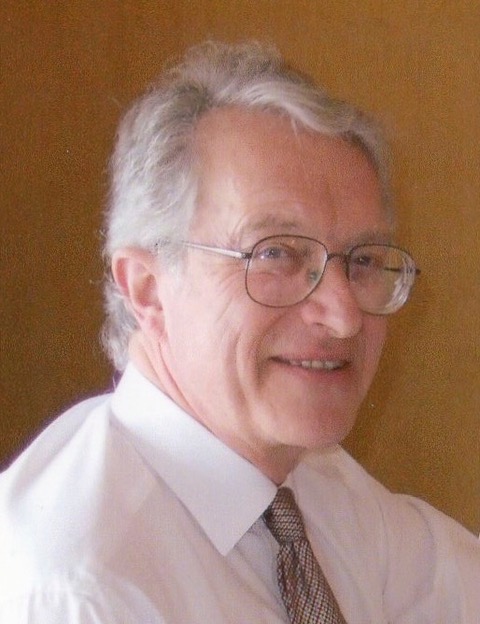Most doctors are very good at talking to the patient, but not so good at talking with them
 Hearing the doctor say, “I’m sorry, it’s not good news: it’s cancer,” is almost always devastating and for those who hear it life is seldom the same again. Although many improvements in the treatment of cancer have been achieved and the causes of some cancers are better understood, the “Big C” can still seem a formidable and lonely mountain to climb. Very often a cancer diagnosis means dealing with uncertainty, anger, fear, grief, loss of control, faltering self-confidence—so many emotions and practical problems that people who have not had cancer never understand.
Hearing the doctor say, “I’m sorry, it’s not good news: it’s cancer,” is almost always devastating and for those who hear it life is seldom the same again. Although many improvements in the treatment of cancer have been achieved and the causes of some cancers are better understood, the “Big C” can still seem a formidable and lonely mountain to climb. Very often a cancer diagnosis means dealing with uncertainty, anger, fear, grief, loss of control, faltering self-confidence—so many emotions and practical problems that people who have not had cancer never understand.
What is it like to discover you have a possibly fatal disease? What does it feel like to go home from hospital to tell the family? How will I manage if I lose my job and struggle financially—all because of cancer? Do the doctors realise how many sleepless nights I spend waiting for the result of the biopsy? Does anyone care how hard it is to share my fear with the people I love most? Am I going to die? I accept that I’m going to die but what will it be like? Questions such as these are discussed only rarely in the surgeon’s office or the oncology clinic.
When I edited a book on the management of bladder cancer, the draft of the final chapter was titled, “Talking to patients about bladder cancer.” I knew there was something wrong with the title but I couldn’t figure out what it was. Then one night it came to me: most doctors are very good at talking to the patient, telling them the diagnosis and describing treatment options, but not so good at talking with the patient.
The comedian, television personality, and palliative care specialist, Bob Buckman, described the situation precisely: the interview with the patient has two components.
• Divulging of information by the professional to the patient.
• A therapeutic dialogue during which the professional listens to, hears, and responds to the patient’s reaction. [1]
When facing end of life and critical management decisions, Atul Gawande, the 2014 Reith lecturer, passed on guidance he received from a palliative care colleague: “A family meeting is a procedure, and it requires no less skill than performing an operation. We focus on laying out the facts and the options but that’s a mistake. Arriving at an acceptance of one’s mortality and a clear understanding of the limits and possibilities of medicine is a process, not an epiphany. The process requires as much listening as talking.”
Before decisions can be made, certain questions need to be answered: “What does the patient understand their prognosis to be? What are their concerns about what lies ahead? What kinds of trade-offs are they willing to make? How do they want to spend their time if their health worsens?”[2]
As a volunteer at a cancer support charity, I spend several hours each week talking with people about their cancer and about dying. It still surprises me that, as they leave, so many say, “I feel so much better having been able to talk about it.” I have the luxury of holding these conversations in the comfort of a quiet sitting room over a cup of tea with a box of tissues at hand. Practising clinicians have to do it in the middle of a busy clinic but, as Buckman pointed out, the conversation can be therapeutic.
Clinicians spend most of their time taking a meticulous history; examining the patient; reviewing scans; attending the weekly MDT meeting; planning, undertaking, or supervising treatment; writing letters. But spending time talking with the person and their family should be regarded as an equally important part of their management.
Talking can be therapeutic and is the first part of the healing process. Taking the time to listen to the patient’s experience of their cancer is time consuming but is, I would suggest, essential, and should be factored in when planning work schedules.
As clinicians whose prime objective is to cure, or at the very least, to prolong life, discussions about the end of life can be daunting—even an unwelcome admission of failure. For this reason, it is quite possible to focus on the quantity of survival rather than its quality. With the patient or their family pressing for everything possible to be done, it is all too easy to accede to their requests and prescribe yet more chemotherapy rather than address the difficult task of talking about dying.
Reginald Hall is a retired consultant urologist and previously director of the Northern Cancer Network. His book Connecting with Cancer, which received the Council Chair’s Choice Special Award at the 2018 BMA Medical Book Awards, is based on his experience as a volunteer at Cancer Connections, a cancer support charity in the North East of England.
Competing interests: None declared.
[1] Buckman R. “Breaking bad news – a six-step protocol.” How to Break Bad News: A Guide for Heath-Care Professionals. Papermac, London; 1992: pp.54-81
[2] Gawande A. (2014) “Letting go.” Being Mortal: Illness, Medicine and What Matters in the End. Profile Books, London; 2014: pp.181-182
